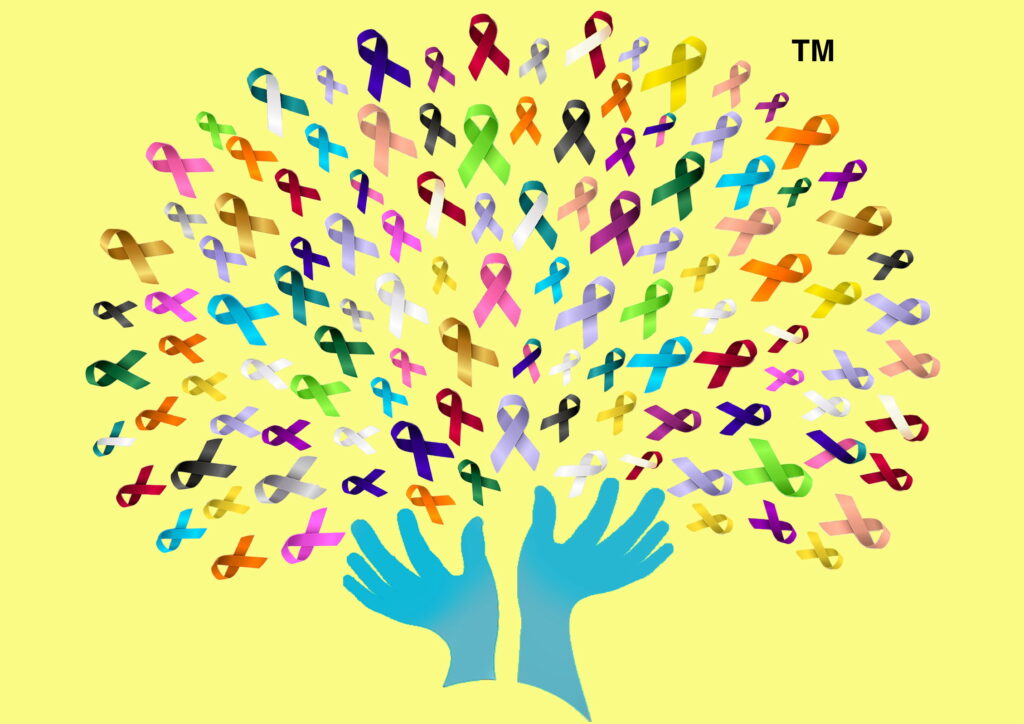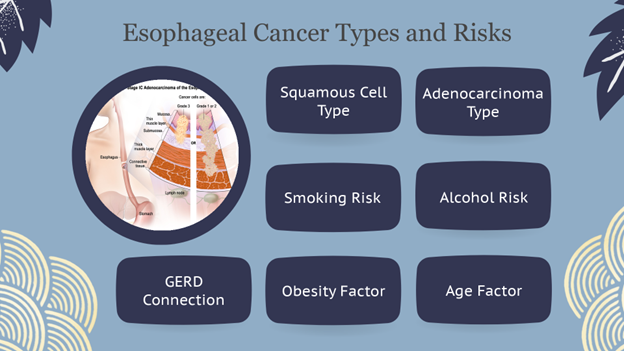Esophageal cancer is a significant health concern in many parts of the world due to its high mortality rate. It’s one of the leading causes of cancer-related deaths globally, making it crucial for the public to grasp its seriousness. More than 500,000 new cases get diagnosed every year, highlighting the scale of its impact.
This cancer develops in the esophagus, the tube carrying food from the mouth to the stomach. Its symptoms often go unnoticed until the disease is advanced. This characteristic contributes to late detection, which is why it’s so dangerous.
Areas like Asia and parts of Africa see higher rates of esophageal cancer. Reasons can be linked to dietary habits and environmental factors characteristic to these regions. For instance, consuming hot beverages or preserved food regularly is linked to its increase.
Early detection can greatly improve outcomes for those diagnosed. Awareness campaigns and educational programs focus on helping people recognize early signs before the cancer progresses. If more people understand this illness, they could seek help sooner, leading to earlier diagnosis and better management. That’s why learning about esophageal cancer, its risks, and symptoms is the first step in fighting it.
Types, Causes, and Risk Factors of Esophageal Cancer
There are two major types of esophageal cancer: squamous cell carcinoma and adenocarcinoma. Each type has distinct causes and risk factors.
Understanding Squamous Cell Carcinoma
Squamous cell carcinoma originates in the thin, flat cells lining the esophagus. In various parts of Asia and East Africa, this is more prevalent. Several factors can increase its risk.
- Consistent consumption of hot or preserved beverages and foods.
- Smoking and excessive alcohol intake.
- Nutritional deficiencies.
These habits damage the esophageal lining over time, raising the cancer risk.
Unpacking Adenocarcinoma
Adenocarcinoma primarily arises from glandular cells, more common in Western nations. It links closely to obesity. Lifestyle choices such as a diet high in processed foods, smoking, and low physical activity heighten the risk.

- Obesity is a known contributor.
- Chronic acid reflux is another risk factor, potentially leading to a condition called Barrett’s esophagus, which can precede this cancer.
Genetic Predisposition and Risk Factors
In India, gender, genetic factors, and lifestyle significantly influence the disease’s prevalence.
– Males have a higher incidence rate than females.
– Genetic predisposition could elevate risks, leading to familial occurrences.
– Tobacco use and alcohol increase these risks, especially in sedentary lifestyles.
It’s crucial to be aware of personal and familial history regarding esophageal cancer to take necessary preventive measures.
Recognizing the Symptoms and Decoding the Diagnosis
Esophageal cancer symptoms are often subtle and go unrecognized until it’s advanced. It’s vital to be alert to early warning signs.
Early Signs Often Ignored
- Difficulty swallowing solid foods, sometimes leading to weight loss.
- Chest pain or discomfort.
- Persistent coughing or hoarseness.
These often get mistaken for less serious conditions, delaying diagnosis.
Evolution of Diagnostic Practices
The diagnostic process for esophageal cancer has advanced, making early detection more feasible.
– Endoscopy: A procedure where a camera on a thin tube examines the esophagus lining, can spot abnormalities early.
– New technologies like narrow-band imaging and chromoendoscopy enhance detection capabilities in places like India.
Making use of these improved diagnostic tools increases early detection rates, offering better outcomes for those affected.
Treatment Options and Innovations in Oncology
Treating esophageal cancer involves various methods, often tailored to individual cases.
Surgical and Endoscopic Treatments
- Surgery: Removing cancerous tissue can be effective for early-stage cancers.
- Endoscopic treatments: Minimally invasive, they treat specific cases without the need for extensive surgery.
A holistic approach involving therapists, oncologists, and nutritionists ensures comprehensive care.
Innovations in India
India’s cancer treatment landscape is evolving rapidly with new therapies.
– Dr. Jaipal Reddy’s work in personalized care marks a significant contribution. His methods consider patient-specific factors, offering tailored treatment plans.
– Innovative therapies aim to improve survival rates and minimize treatment side effects.
With promising innovations, patients receive more focused and effective care.
Living with and Preventing Esophageal Cancer
Prevention and effective management of esophageal cancer heavily rely on supportive networks and lifestyle changes.
Support Structures
- Family and community play crucial roles in a patient’s journey.
- Healthcare networks offer medical and emotional support essential for coping.
Dietary and Lifestyle Adjustments
Reducing the risk of esophageal cancer involves simple, effective measures:
– Maintain a balanced diet rich in fruits and vegetables.
– Avoid smoking and limit alcohol consumption.
– Engage in regular physical activity.
Making these adjustments can significantly reduce risk factors.
Research Breakthroughs
Recent research provides hope for better outcomes and prevention:
– Studies focus on risk factors, early detection, and new treatments.
– Innovations in therapies promise better success rates.
Encouraging Proactive Measures
- Regular screenings can catch early developments, leading to quicker interventions.
- Managing Barrett’s Esophagus with regular checkups reduces progression chances.
Taking these steps can help in the prevention and better management of this disease.
Conclusion
Awareness and proactive lifestyle choices play pivotal roles in combating esophageal cancer. By understanding its symptoms, risks, and treatments, individuals can take control of their health, benefiting from advances in diagnosis and therapy spearheaded by experts like Dr. Jaipal Reddy. Encouraging awareness about how to prevent esophageal cancer adds to community knowledge, helping more people stay vigilant and informed.

